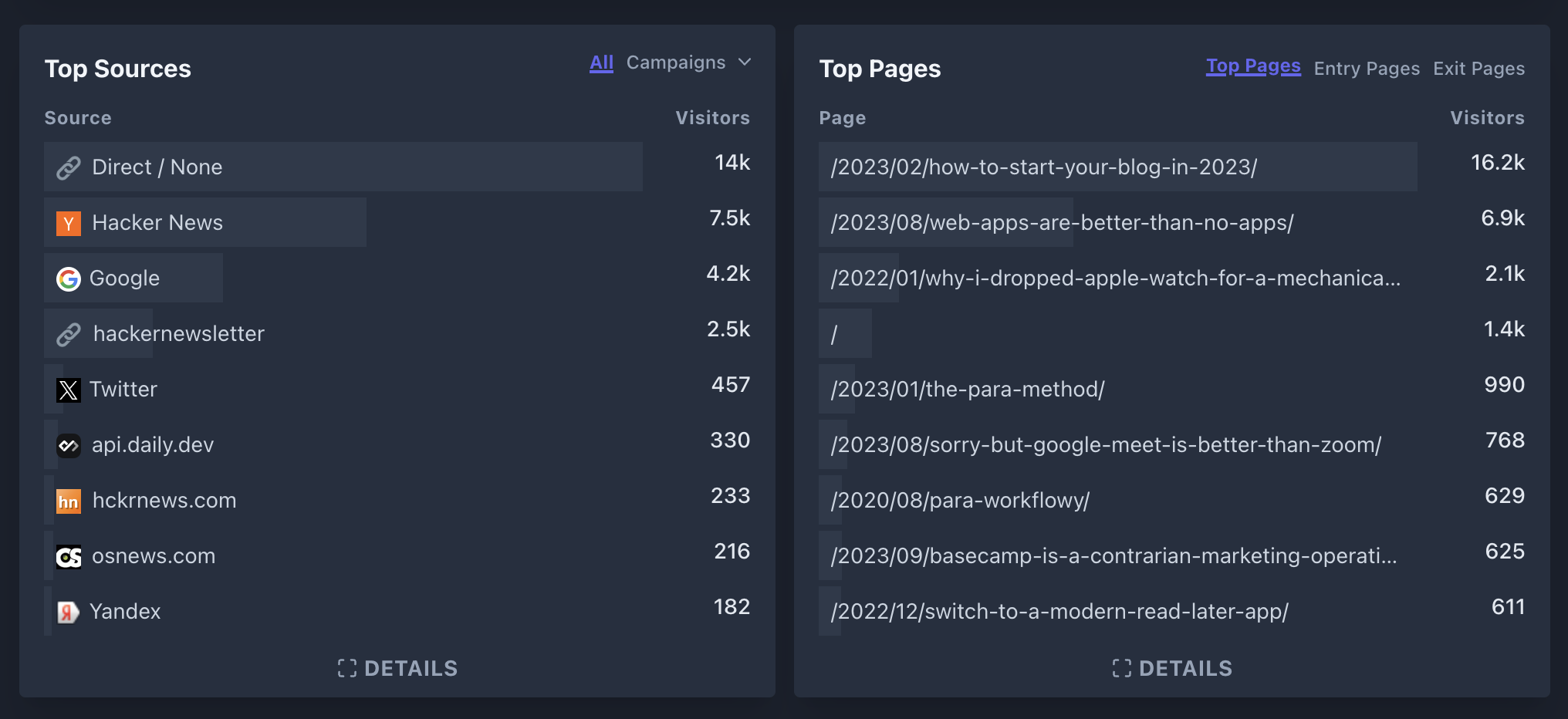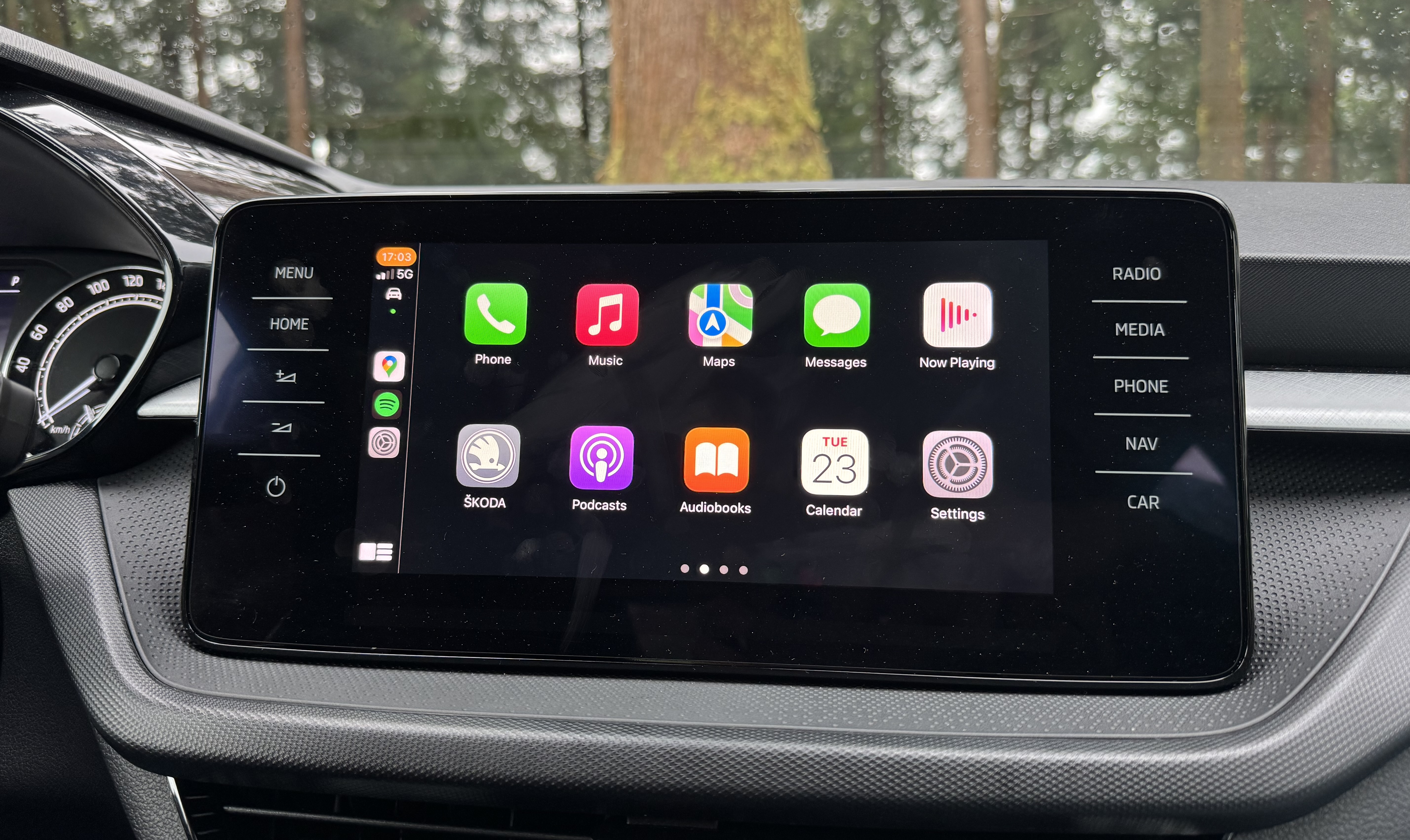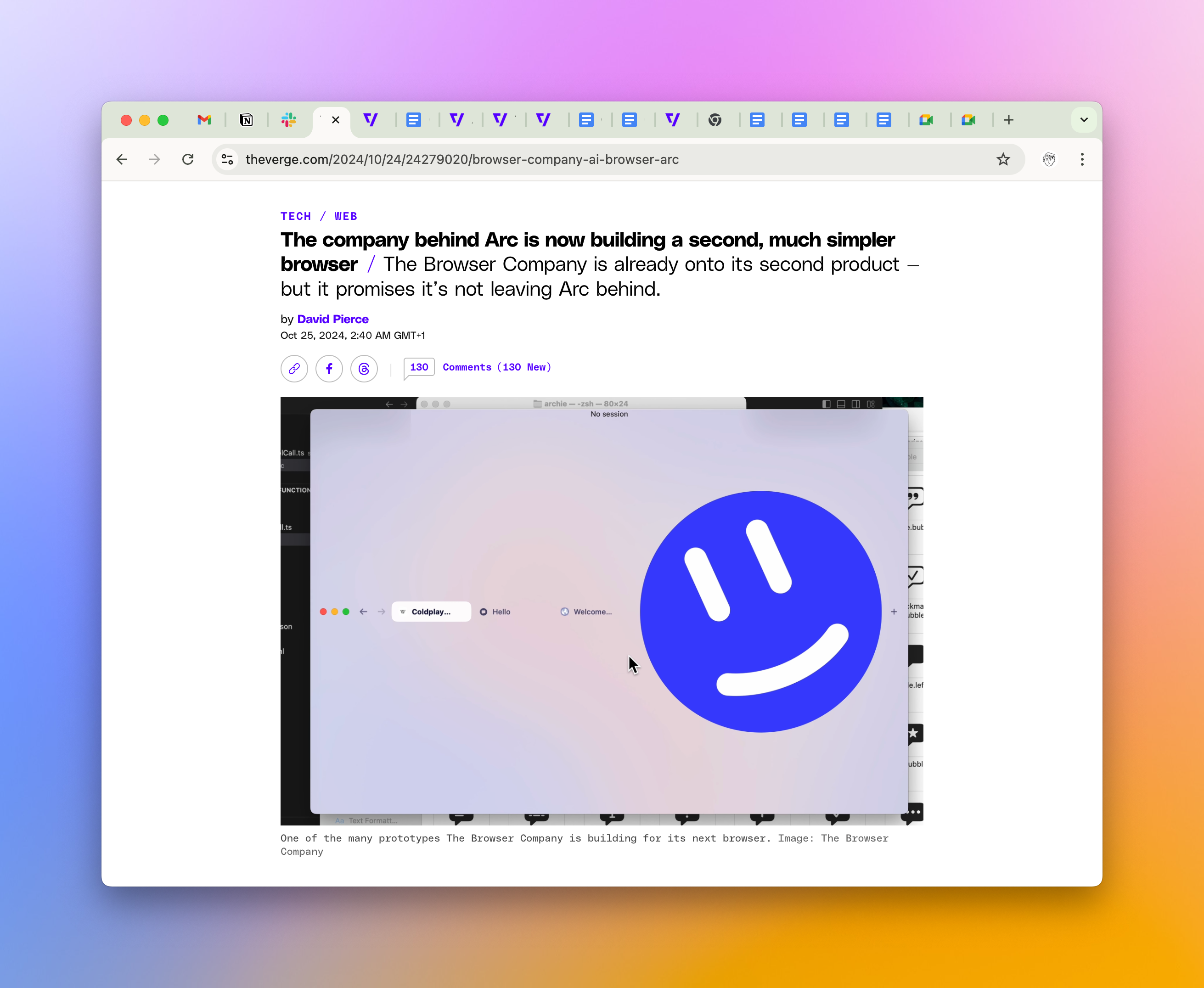Does Blogging Even Work?
Blogging is still the most reliable way of broadcasting your thoughts without being at the whims of someone’s algorithm.

Blogging became popular in the late 1990s and early 2000s, with the rise of platforms like Blogger and WordPress, which made it relatively easy for people to run their blogs.
Then came social media platforms and managed services like Medium that ultimately gathered hundreds of millions of people who’d never bothered to set up their own blogs. Traditional blogs have been almost abandoned during this time.
And even though we’ve seen the resurgence of email newsletters and Substacks, they operate a bit differently: newsletters are usually more professionalized, and authors stick to one or two areas and generally write to make money out of it.
It’s not like all blogs died. I’m subscribed to a few dozen of them via RSS. But it’s certainly not what the majority of people are doing. Social media provided a straightforward way of broadcasting to a big audience, but as intermediaries, they could change the rules of this game (many media orgs felt the result).
The same is happening to Twitter now. Before Elon, its algorithmic feed was primarily focused on people you follow, bringing their most essential tweets and conversations higher while injecting a few “heroes of the day” for your amusement. I liked this feed and preferred it to the chronological one. The current “For You” feed is more like a textual TikTok, gathering anything engaging from your language’s segment of Twitter.
It’s indeed very engaging. Sometimes, I accidentally switch and notice myself scrolling through posts from unfamiliar people and all the emotions they produce in me. At the same time, I realize posts from the people I follow don’t always make it into my feed. The “Views” counter Elon introduced showcases this even better.
Unless you’re already big or willing to commit to this game of engagement farming fully, anything you write on Twitter there will likely stay irrelevant.
And here we come back to blogging. I started writing here four years ago, and at the beginning, it felt like shouting into the void. Coming up with content ideas was difficult. But everything I wrote was compounding. I can never predict which posts will do well, but in the long run, a few will attract attention. And sometimes, specific things and concepts I wrote about previously suddenly become popular, and people go to read up on them. Even coming up with ideas has become much easier. There are at least 10 posts I’m yet to write.
Compounding is the name of the game. Anything you write is searchable instead of being drowned or pushed outside everyone’s feeds. At this point, Google and Direct traffic vastly outnumber any Twitter engagement for me. Nobody cares about your old tweets (unless they want to cancel you), yet people regularly find the posts I wrote a few years ago.
There’s a concept called “Create Once, Publish Everywhere” and having your own blog helps, even though most centralized platforms suppress posts with outside links. When you lead people to your domain and provide them with some ways to follow you (email, RSS, and social), the conversion rates might suffer, but any of these followers is worth so much more. This was the key reason for newsletters’ popularity – not because everyone loved email, but the fact you could reach people directly without an algorithm between you (well, Gmail anti-spam and categories are a bit of an algorithm).
If you want to set up your blog, I have a guide here. Ultimately, it doesn’t matter what platform you use. What matters is that you stick with the practice and continue writing no matter what.




